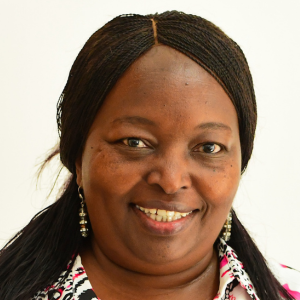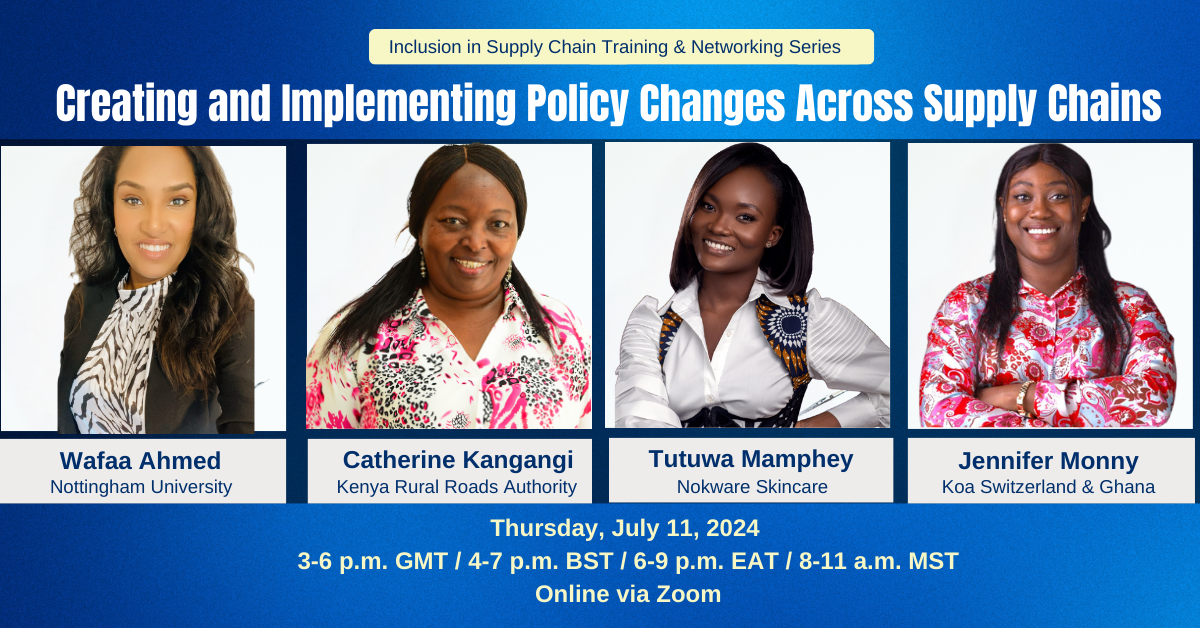Supply chain is often part of the solution to global challenges. But managing supply chain policies and practices is an ever-evolving exercise. And knowing what changes to make and when can be difficult.
At our July 11 Inclusion in Supply Chain Training and Networking event, four women leaders shared their experiences implementing policy changes at their workplaces. Their stories highlighted policies that facilitate access and inclusion of underrepresented groups, including women, those with disabilities and compelled laborers.
The presenters provided insights into their professional journeys spanning the higher education, entrepreneurial, government and agribusiness sectors. A representative from the Mastercard Foundation also spoke about Mastercard’s persons-with-disability policy at Kwame Nkrumah University of Science and Technology.
The objectives of the event wee threefold:
- providing insight on how policy changes are implemented on multiple levels;
- showcasing successful stories of women and underrepresented groups leading in supply chain initiatives, and
- creating a platform for like-minded individuals to connect, collaborate and exchange ideas.
About the speakers:

Wafaa Ahmed is an assistant professor of information systems at Nottingham University in the U.K. She has worked with leading organizations to investigate the use of blockchain technology in the mining, automotive, textile and logistics sectors. She also has expertise in supply chain management, digital transformation and project management.

Catherine Kangangi is deputy director of supply chain management for the Kenya Rural Roads Authority. She also serves as a consultant to the Kenya Institute of Supplies Management (KISM) and a council member of the Professional Standards Committee of the Chartered Institute of Purchasing and Supply (CIPS).

Tutuwa Mamphey is the founder and CEO of Nokware Skincare. After starting a career in finance, she founded the business in her father’s kitchen and now has a dedicated factory space with a full-time workforce of 12 women. The company is founded on the values of local sourcing, women’s empowerment, inclusive beauty and sustainable packaging.

Jennifer Monny is director of supply chain and procurement for Koa Switzerland and Ghana, which produces and sells fresh cocoa fruit juice and pulp. In that role, she has helped drive sustainability and innovation in the cocoa industry. A recent KNUST PhD graduate, Monny’s research interests lie in agri-food supply chains, green supply chain innovations, gender balance and sustainability.


